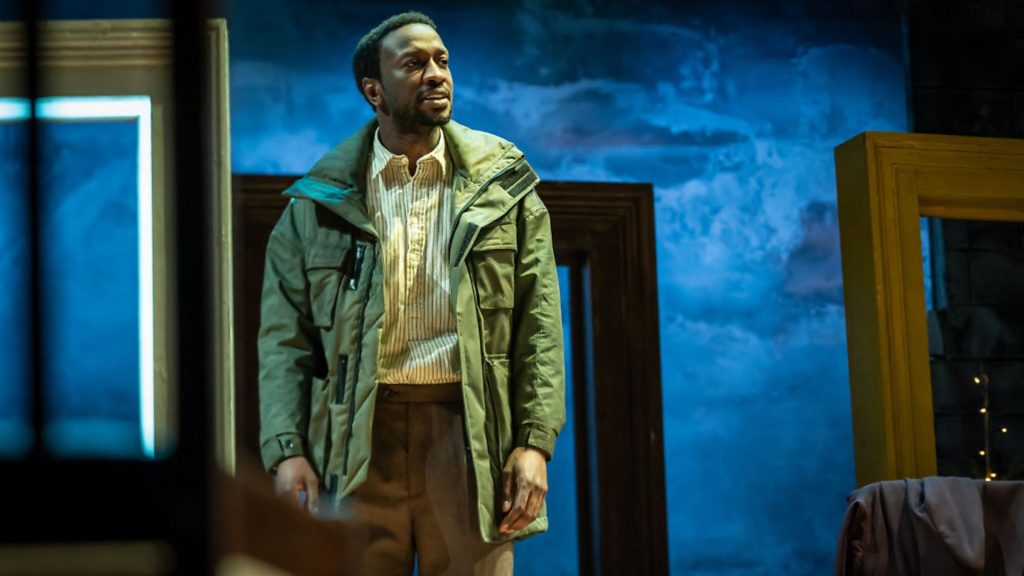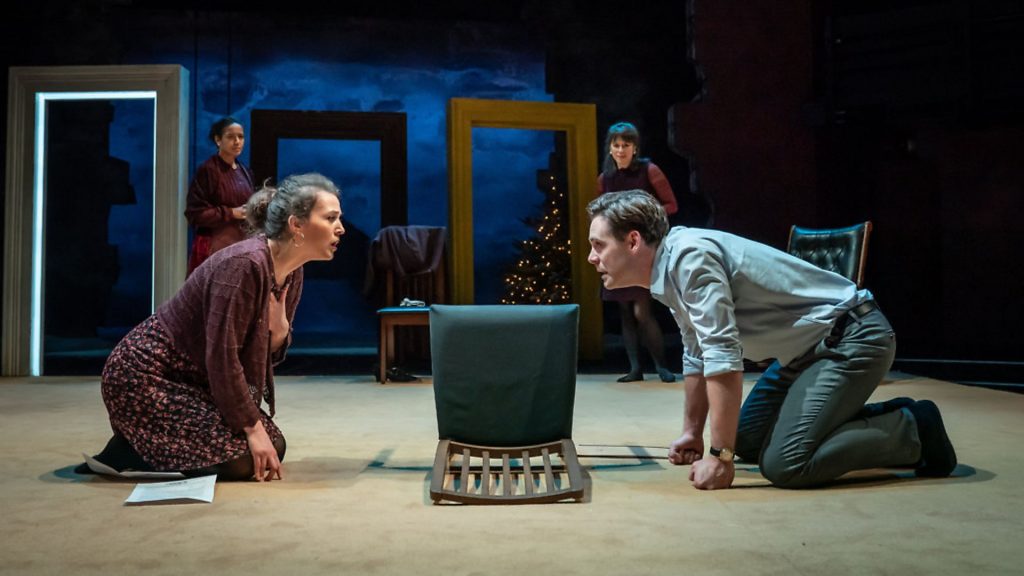
A play which is all about saluting strong women was recreated at Young Vic Theatre in London.

When Henrik Ibsen wrote A Doll’s House in 1879, he recognised the fight for gender equality was never going to be a quick and easy win, but an endless and bloody war of attrition. His play proved to be a useful stick of dynamite for the cause, with its central character Nora audaciously questioning the traditional roles of a man and a woman in a marriage. It movingly showed, too, how the institution could all too easily become a form of captivity for the wife.
This was theatre at its very best and most radical and it caused uproar in conservative Norwegian society when it was first staged. I can well understand why it means so much to the feminist playwright Stef Smith, but I fear she’s killed the thing she loves with her reimagining of the work as Nora: A Doll’s House. She interweaves the stories of three Noras at significant points in the fight for equal rights and emphasises how it’s an ongoing struggle: 1918, when women were allowed to vote; 1968, when the pill became widely used and abortion was legalised; and 2018, when the scale of the #MeToo movement became apparent.
It’s all well and good to have a clever idea like that, but the trick is to make it work. Her play feels modish and contrived and has none of the dramatic tension – or sense of a journey – that made the original such an enduing classic. I’ve no doubt at all that Ibsen himself would have found it rather annoying, not least with its suggestion of a lesbian attraction between Nora and Christine (Amaka Okafor).
The three Noras are played with determined earnestness by Natalie Klamar, Okafor (doubling up in this role) and Anna Russell-Martin, and the male characters (with Anglicised names and suitably-adapted backstories) by Mark Arends, Luke Norris and Zephryn Taitte. The director Elizabeth Freestone gives it everything she’s got, but, for all the efforts and best intentions of everyone involved, it’s still very heavy-going.

Still, let’s always accentuate the positive: Tom Piper’s angular set, consisting of three doorways – presumably evoking the door Nora slammed shut in the original – is impressive.
Frances Barber comes from a breed of larger-than-life actresses that have included Coral Browne, Elaine Stritch and Eartha Kitt, all of them strong, opinionated women who have been as fascinating off-stage as on it.
Their voices, as well as their instinctive ability to deliver lines to maximum effect, are another common denominator.
Barber is appearing in Musik at the Leicester Square Theatre until March 1 and the one-woman show serves as a wonderful showcase for her talents. The new Pet Shop Boys musical – written by Jonathan (Beautiful Thing) Harvey and directed by Josh Seymour – focuses on the life of Billie Trix, a character who began life in the boys’ last collaboration, Closer to Heaven. Trix knew anyone who was anyone in the cultural world over the past 75 years: it’s a simple premise that makes for a joyful cocktail of cabaret and salacious showbiz gossip.
Warning: Illegal string offset 'link_id' in /mnt/storage/stage/www/wp-includes/bookmark.php on line 357
Notice: Trying to get property 'link_id' of non-object in /mnt/storage/stage/www/wp-includes/bookmark.php on line 37







